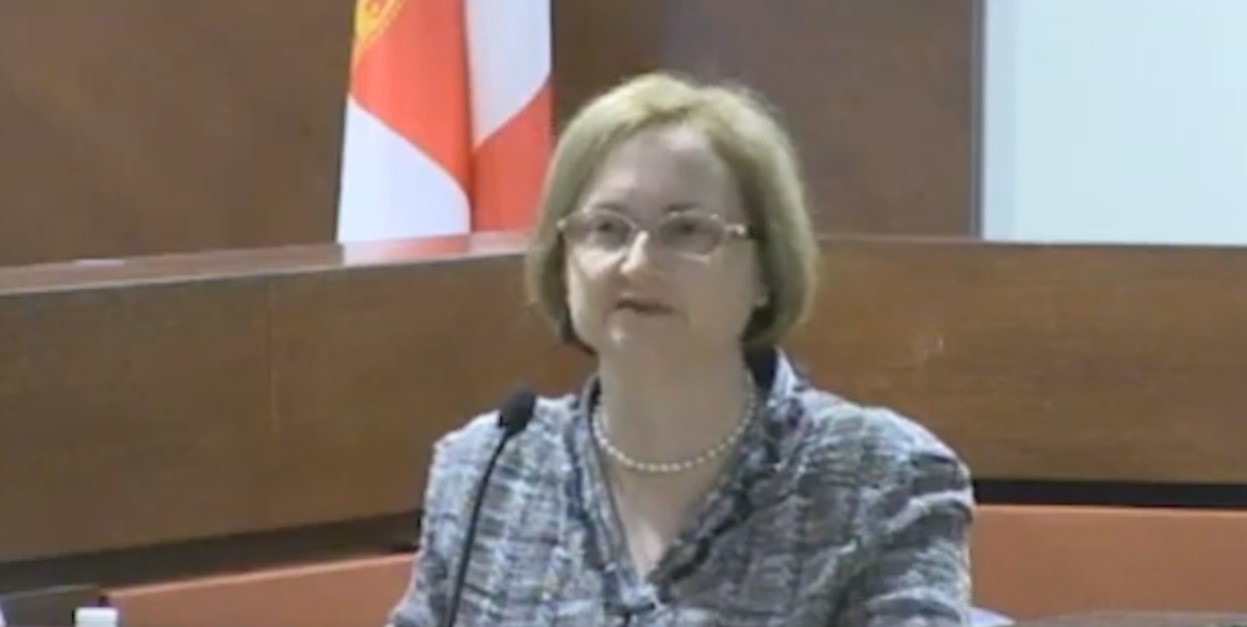

The Expert: Dr. Melinda Hayes, a Florida-based physiatrist, testifies for the plaintiff on the post-accident surgery on the teenager and her nearly year-long stay in a rehabilitation center.

During a 2019 Florida trial against two bars that served alcohol to minors before an auto wreck that left a teenager with catastrophic brain damage, Dr. Melinda Hayes, a Tampa-based physiatrist [physical medicine and rehabilitation expert], testifies for the plaintiff concerning the teen’s post-accident surgery and nearly year-long stay in a rehabilitation center. Dr. Hayes is also certified in Brain Injury Medicine by the American Board of Physical Medicine and Rehabilitation.
The doctor, also certified in brain injury medicine by the American Board of Physical Medicine and Rehabilitation, speaks with authority in terms that the jury can easily understand. She first addresses the surgery that was performed just after the accident. The patient suffered from four types of head injury: a subdural hematoma, bleeding from veins that is a constant, slow “ooze” from severe trauma to the head; an epidural hematoma, which is fed by arteries and bleeds more rapidly due to the pulsatile nature of the blood flow within arteries; a subarachnoid hemorrhage from a structure that is meant to protect the brain; and diffuse axonal injury of the nerves within the brain, which was diagnosed later.
Using a visual aid to, the expert explains that the victim was struck on the left side of the head, which caused the brain to bounce against the right side of the skull, so both sides were affected by the trauma. The neurosurgeon that operated on the teen removed a section of the left side of the skull to allow the evacuation of the blood clots that had formed there. Since the brain is housed in a rigid structure, bleeding into it or swelling will increase the intracranial pressure and threaten to destroy the brain’s nerve cells. The normal pressure would be 5-15 mmHg. This patient’s pressure on opening the skull was 22. A pressure monitor was inserted to continually monitor the intracranial pressure post-operatively so measures could be taken to lower that pressure if necessary.
The initial injury affected the frontal lobe, which deals with a person’s ability to initiate an action. The parietal lobe was also injured, affects the ability to move the opposite side [right] arm and leg. The temporal lobe injury would affect emotions and memory. Meanwhile the injury to the other [right] side caused by the brain bouncing within the skull caused weakness in the opposite [left] arm and leg.
Initially the patient was stabilized for three weeks at an acute care facility in Florida, but then she was transferred to a Georgia facility better equipped to deal with rehabilitation in an intensive care setting. This facility can deal with people in a semiconscious state. She was there for 320 days. During this time, she was initially comatose, she could not breathe on her own, and could not eat. She was given a tracheostomy tube for long-term breathing problems and a gastrostomy tube for feedings. While at this facility, she was also evaluated for a Baclofen pump.
Baclofen is a medication that is useful for muscle spasms due to “faulty signals coming from the brain,” the expert tells jurors. It is usually taken orally, but when treatment requires continually increasing the dose of the drug, side effects such as drowsiness become problematic. The Baclofen pump is implanted in the patient, and it constantly “drizzles” the drug along the spinal cord in much smaller doses, effectively controlling the spasms without causing the side effects. Unfortunately, in this case the pump had to be removed due to a meningitis infection. She subsequently had Botox injections into the muscles to control the spasms of her arms and legs.
The patient developed hydrocephalus during her stay at the specialty center, a condition caused in her case by the trauma or subsequent brain infections, which clogs the circulation of cerebrospinal fluid and leads to the buildup of this fluid and resulting dilation of the brain’s ventricles [cavities] with subsequent mental deterioration and loss of bodily function. To treat this condition, she had a ventriculoperitoneal shunt placed. This permanent shunt carries the pressurized extra cerebrospinal fluid from the brain ventricles to the abdomen where it can safely drain. Her initial shunt has been replaced once already, and since it will be needed for the rest of her life, it may require replacements in the future. The Baclofen pump has also been replaced once, and it will be needed permanently as well.
The jury ultimately awarded $30.8 million.
Gary Gansar, MD, is residency-trained in general surgery. He served as Chief of Surgery and Staff at Elmwood Medical Center and on the Medical Executive Committee at Touro Infirmary and Mercy Hospital in New Orleans, LA. Dr. Gansar was Board Certified in general surgery while in active practice. He joined AMFS in 2015 as a Physician Medical Director.
The medical expert witness partner for attorneys serious about building a winning case
AMFS is your trusted source for highly-qualified medical expert witnesses. After pioneering the field nearly three decades ago, we’re continuing to redefine medical expert witness services by providing value far beyond a referral alone.
Our Physician Medical Directors know what it takes to build a strong case. Our medical expert witnesses leave no doubt. And our case managers streamline billing and logistics every step of the way, letting you focus on what you do best: constructing your winning case. Explore why AMFS clients expect more from their medical expert witnesses—and get it.
